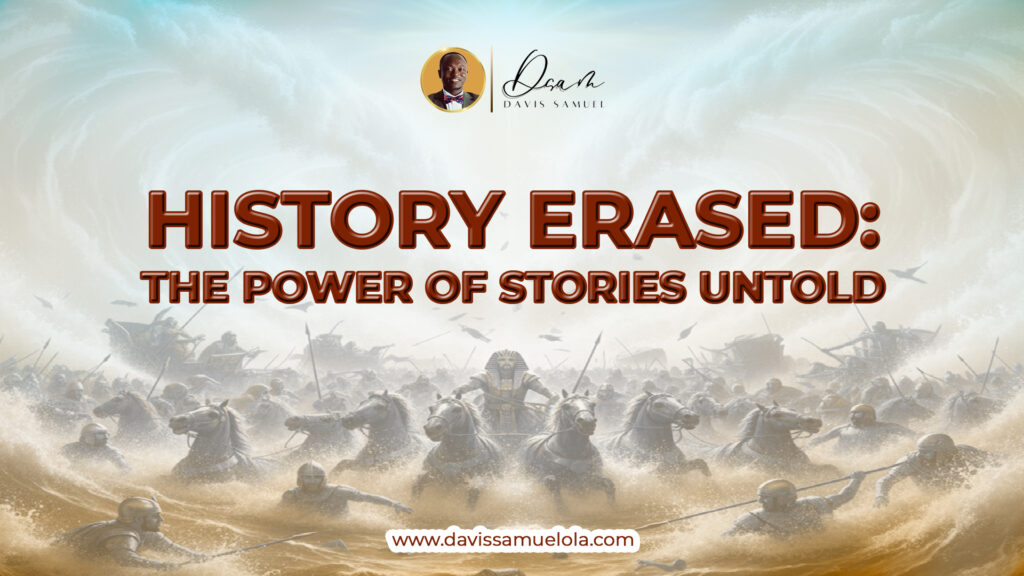Last night, I was in a meeting led by my good friend, Sir Mike Lanny when he mentioned that “No Egyptian historical record mentions a Pharaoh drowning in the Red Sea”. This fact struck me.
History is often shaped not just by events, but by how those events are recorded—or erased. One notable example is the biblical account of the Pharaoh who drowned in the Red Sea along with his soldiers. Despite the Bible’s detailed description of this event (Exodus 14:28-30), Egyptian records remain silent on the matter. This isn’t the only instance where biblical events go unmentioned in Egyptian history. For example, the plagues and the story of Moses are well-known from scripture but find little to no mention in ancient Egyptian texts.
This absence raises a vital question: Why? One reason may be that history is often controlled by those in power. They decide what gets remembered and what is forgotten. Egyptian rulers might have preferred to leave certain events, especially those depicting their defeat, out of the official narrative. This reveals a deep truth about life: you have the ability to shape your own story. It’s not about lying or deception—rather, it’s about choosing which parts of your life or history you wish to highlight.
The Bible offers further insight into the importance of record-keeping. In the book of Exodus, we learn of a new Pharaoh who “knew nothing about Joseph” (Exodus 1:8). This could be due to the deliberate omission or alteration of past records. Joseph, a Hebrew, had once saved Egypt from famine, but over time, his contributions were forgotten, leading to the enslavement of the Israelites for 430 years. This neglect of history was no small matter—it had dire consequences for an entire nation.
This teaches us a valuable lesson: documentation is key. What is not recorded may be forgotten, and what is forgotten can lead to enslavement—whether literally, as it did for the Israelites, or figuratively, in the sense of losing control over your own narrative.
As Proverbs 22:1 reminds us, “A good name is more desirable than great riches.” A legacy, like a good name, can only endure if it is preserved. Whether through written records, oral history, or digital footprints, it is crucial to document the things that matter in life. Proper documentation is not just for historians or governments; it’s for anyone who wants to leave a lasting impact.
As the saying goes, “If you don’t tell your story, someone else will tell it for you.” What will they say?
Have a great weekend.
P.S – You can gain valuable insights from Sir Mike Lanny via his YouTube page: https://www.youtube.com/@themikelanny






5 thoughts on “History Erased: The Power of Stories Untold”
Thank you so much Doctor for sharing. I feel deeply honoured for the mentions.
Interesting and educative, more grace 👍
Dr. Samuel always delivers. Thank you for this Sir.
This is an interesting perspective. Thank you, sir, for this well-written piece.
This is insightful and a good reminder to document our own stories.
Thanks for sharing Doc!